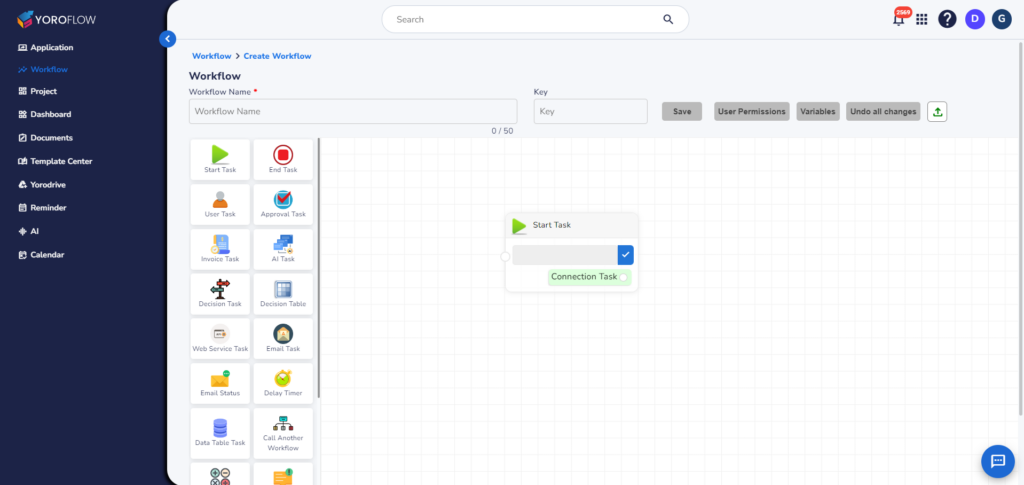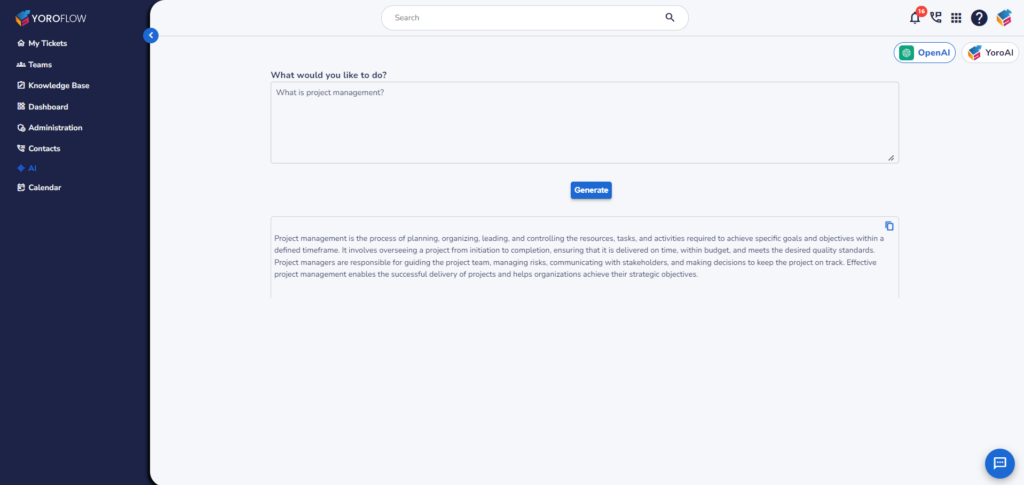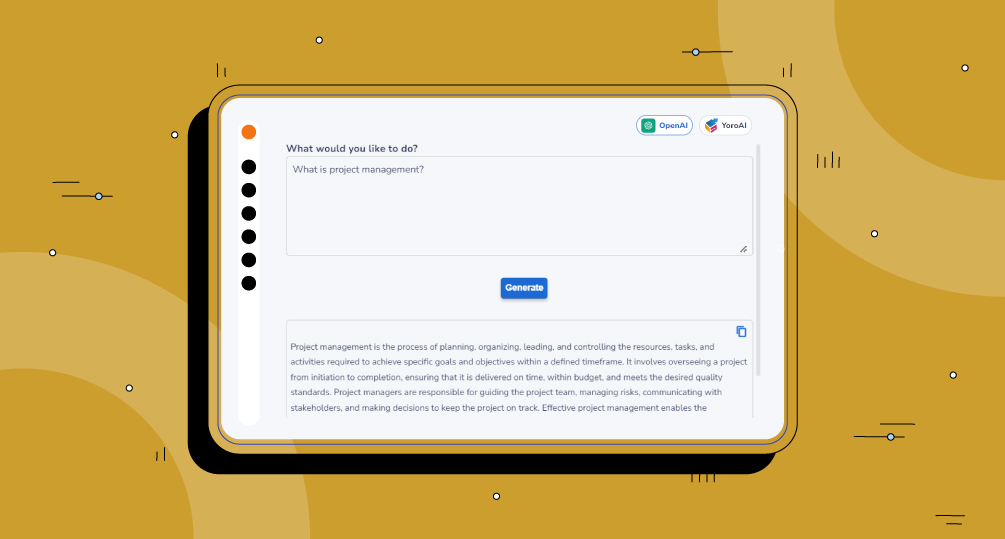Table of Contents
Artificial Intelligence (AI) and Intelligent Automation (IA) are the hot topics in the digital world. AI and IA both play major roles in automation. Both are related terms with some differences in their functionality.
This article will explore what AI is, what IA is, benefits of both AI and IA, and their differences.
What is Artificial Intelligence (AI)?
Artificial Intelligence is a technology used to make machines perform tasks that require human intelligence. AI technology uses machine learning algorithms to perform tasks like learning, thinking, decision–making, speech recognition, handwriting recognition, and pattern identification. This Artificial Intelligence technology is now all around us. For example, self-driving cars, playing music, diagnosing medical issues, and playing games.
AI is a wider technology comprising various elements like conversational AI, generative AI, machine learning, and natural language processing. Each element has its unique functionality providing various purposes like customer service, content creation, personalized recommendations, and identifying patterns.
What is Intelligent Automation (IA)?
Intelligent automation (IA) is a process of using AI technology in the automation system. AI automation widely provides workflow automation, robotic process automation, CRM automation, hyper–automation, task automation, marketing automation, and helpdesk automation. AI systems can automate tasks like analyzing market trends, resource allocation, inventory management, data entry, and report generation.
Automation tools use AI technology to reduce repetitive tasks and provide them with enough time to enhance their efficiency. For instance, Yoroflow, a workflow management software, provides streamlined workflow, event automation, tracking task status and resource’s performance. This tool enhances the efficiency of the team and increases productivity of the organization.
Benefits of AI an IA
AI technology offers various benefits across many industries.
Automation
The world is facing digital transformation, which increases the demand for automation tools. AI technology is used in automating various business processes like workflow, sales, marketing, and business process management.
For example, for a successful project, the team requires a proper workflow to work with it. Yoroflow provides a streamlined workflow that automates workflow management. This workflow can be created by dragging and dropping pre-defined components. This tool provides easily customizable workflow with the available templates or can create new templates with the pre-defined components.

Customer support
Customer needs to wait for a long time to resolve their issues or get assistance from the company. It causes frustration for the customers. Also, a heavy workload for the helpdesk team reduces productivity.
When an organization uses automation software for customer service, AI technology automates the customer service process. It provides fast responses which helps the customer not to wait for a long time. This AI technology analyzes customer behavior and huge databases to provide personalized customer service.

Medical assistance
In the medical field, AI automation helps diagnose various diseases and provide treatment suggestions. It works based on rule-based training provided at the early stages of implementation. This can analyze the radiology images and provide reports in a short time. This increases the speed and accuracy of diagnosis.
Better decisions
AI automation systems can analyze huge databases and provide valuable insights into various factors as per the requirements. This helps the team to make better decisions. For example, workflow management tools can automate workflows for various industries. If HR management implements workflow management to streamline the recruitment process, it automates all the routine tasks without human intervention. This AI system automates screening candidates’ profiles, conducting preliminary tests, analyzing results, and scheduling interviews. This reduces the bias in the selection process. Also, all these reports provide valuable insights which help the HR team to make better decisions.
Enhances speed
AI technology can automate various processes and reduce the operational time of resources. For example, in workflow management software, AI technology can automate various tasks like workflows, resource allocation, time tracking, task tracking, and report generation. By automating these repetitive tasks, AI automation tools can enhance the speed of the project.
Reduces human error
By automating repetitive tasks like data entry, AI automation tools reduce the risk caused by human errors. In the case of financial tasks or inventory management tasks, human errors cause major impact in the overall results. Also, in terms of customer service, human errors are a major drawback. AI reduces these errors by automating customer engagement and providing personalized service.
Difference between AI and IA
- AI focuses mainly on machines to perform human tasks, whereas IA focuses on humans to enhance the task’s efficiency.
- AI performs tasks automatically while IA automates the repetitive tasks and reduces workload for resources.
- AI performs predictive analysis while IA uses predictive analysis for providing customer service through chatbots.
- AI tries to replace human intervention whereas IA uses AI technology to enhance productivity.
Choose your tool with AI technology
AI and IA are closely related terms, but the few differences make them choose wherever they are needed. Various automation tools use AI technology to reduce repetitive tasks for resources. Yoroflow offers many features like built-in templates, workflow automation, time tracking, resource performance tracking, analysis and customizable dashboard for report generation. By leveraging these features of Yoroflow, organizations can reduce risk, operational time, and cost and increase efficiency and productivity.




